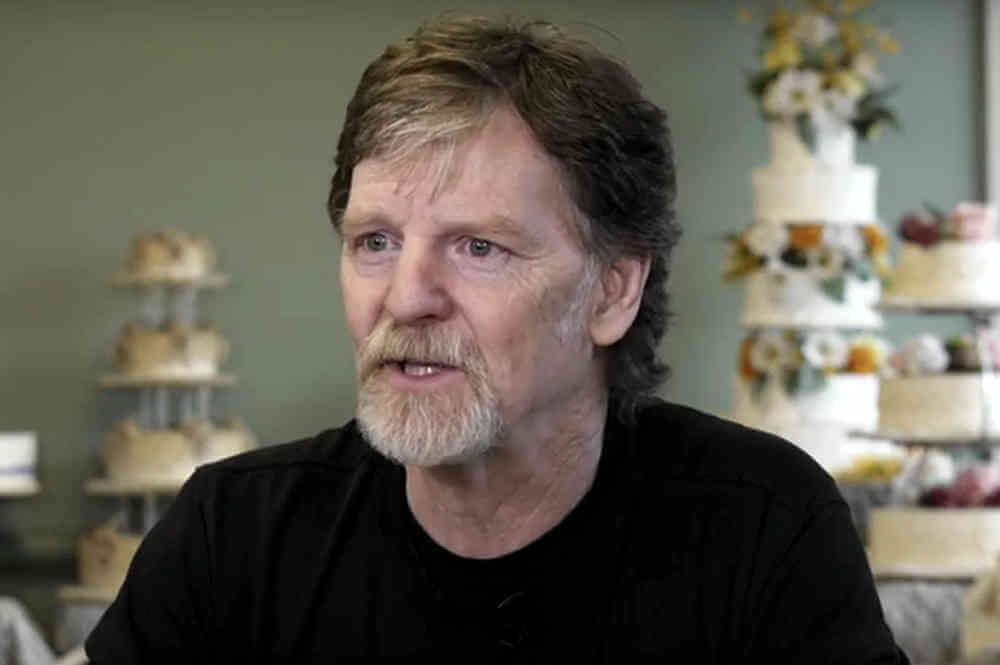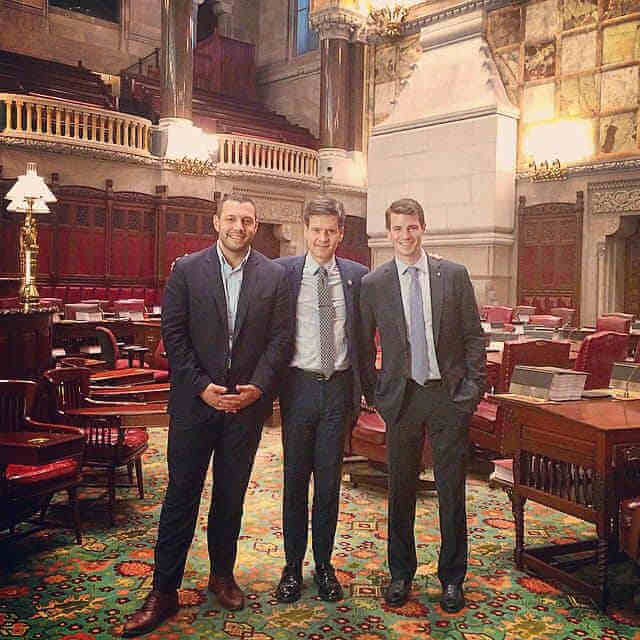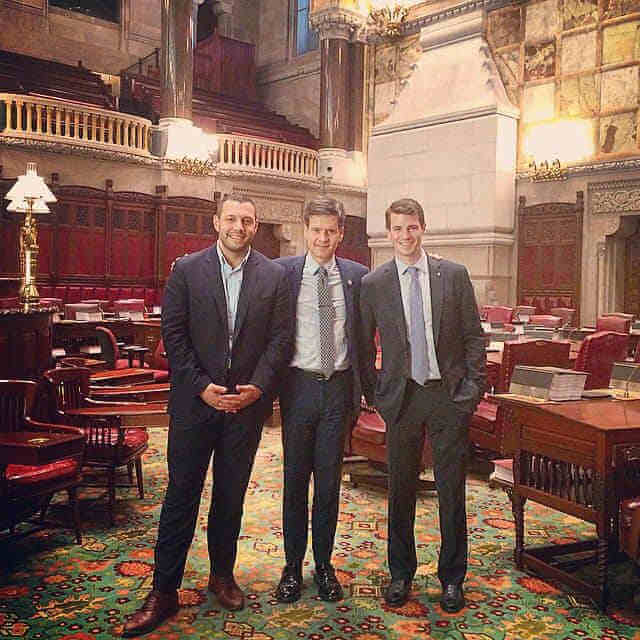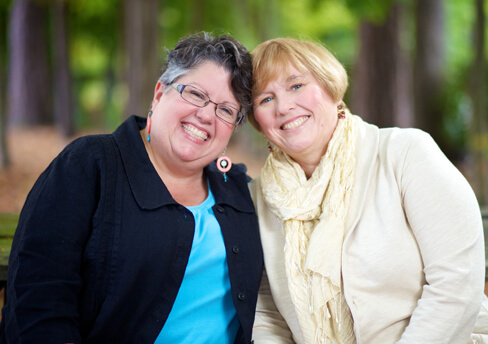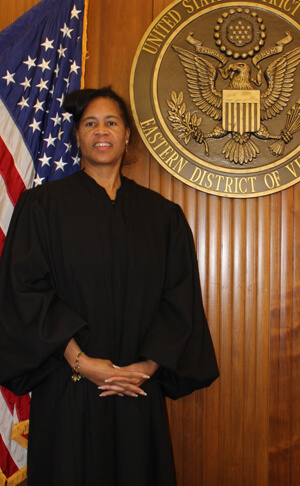Masterpiece Cakeshop baker Jack Phillips is back in court, this time suing officials of Colorado’s Civil Rights Commission and its Civil Rights Division and the state’s attorney general and governor to try to block the Commission from continuing a case against him for refusing to make a custom-designed cake celebrating the anniversary of a transgender attorney’s transition.
On January 4, Senior US District Judge Wiley Y. Daniel largely rejected a motion by defendants to dismiss the case, although he narrowed its scope somewhat.
For those coming in late to this ongoing drama: Phillips and Masterpiece Cakeshop were found by the Commission and the Colorado Court of Appeals to have violated the state’s public accommodations law when he refused to make a wedding cake for a gay couple in 2012 because of his religious objection to same-sex marriage. The US Supreme Court reversed those decisions in a 7-2 ruling last June 4, based on the high court’s conclusion that the state had not afforded Phillips a “neutral” forum to consider his First Amendment defense.
Part of the Court’s conclusion that the Commission was “hostile” to Phillips on religious grounds rested on its treatment of a provocateur named William Jack. While the discrimination claim by a gay couple was pending before the Commission, Jack approached three Colorado bakeries that custom-decorate cakes, asking them to make cakes for him that “conveyed disapproval of same-sex marriage, along with religious text,” quoting from Justice Anthony M. Kennedy’s opinion for the Supreme Court. All the bakers turned him down, stating that they “objected to those cakes’ messages and would not create them for anyone.”
Jack filed discrimination charges against the bakeries, but after investigating his charges, the Colorado Civil Rights Division found no “probable cause” that the statute was violated, and the Commission affirmed that determination.
The Supreme Court seized on the Commission’s response to Jack’s provocation, saying that its hostility was evident in “the difference in treatment between Phillips’ case and the cases of other bakers who objected to a requested cake on the basis of conscience and prevailed before the Commission.”
The Civil Rights Division ruled in Phillips’ case that “any message the requested wedding cake would carry would be attributed to the customer, not the baker,” while “the Division did not address this point in any of the other cases with respect to the cakes depicting anti-gay marriage symbolism.”
Justice Kennedy also critically noted that “the Division found no violation of the Act in the other cases in part because each bakery was willing to sell other products to the prospective customers” but the “Commission dismissed Phillips’ willingness to sell birthday cakes, shower cakes, cookies, and brownies to gay and lesbian customers as irrelevant.”
The Supreme Court’s June 2017 announcement that it would review the state court’s ruling against Phillips received widespread media coverage and apparently prompted Autumn Scardina, a transgender attorney, to take a leaf from William Jack’s book. She phoned Masterpiece and inquired about getting a birthday cake with a blue exterior and a pink interior to “celebrate her transition from male to female.” Phillips turned down the order, stating he would not make a cake celebrating a gender transition for “any customer, no matter the customer’s protected characteristics.” His lawsuit alleges he “offered to create a different custom cake for Scardina or to sell her any of the pre-make items available for purchase,” but she declined to order anything else.
Scardina filed a discrimination charge with the Division. Several weeks after the Supreme Court ruled on the first Masterpiece Cakeshop case, the Division issued a probable cause determination against Phillips for violating the public accommodations law by refusing Scardina’s cake order. While noting the religious reasons Phillips cited — his belief that a person’s sex is “an immutable God-given reality” — the Commission nonetheless concluded that “the refusal” was based on Scardina’s “transgender status.”
On October 2, 2018, the Commission filed a formal complaint against Phillips based on the Division’s finding, and set the case for a hearing. By then, Phillips had already filed a complaint in federal court, which the defendants promptly moved to dismiss. Phillips charges that the state is out to get him, characterizing its actions as “unconstitutional bullying.” The Commission has not yet held its hearing.
Phillips claims that the state’s interpretation of the public accommodations law violates his First Amendment rights to free exercise of religion and freedom of speech. He also attacks the nondiscrimination law on several due process grounds, including the requirement that several members of the Commission be representatives from minority communities protected by it. He also asserted an equal protection claim, focused again on the differential treatment that the Commission accorded the bakers who had refused to make anti-marriage equality cakes for William Jack.
In ruling on the motion to dismiss, Judge Daniel found that none of the doctrines developed to preempt federal lawsuits that interfere with state administrative proceedings apply in this case, and that Phillips had standing to bring this lawsuit, not only because of the proceedings ongoing against him, but also because he wanted to post a policy statement on his business’ website about the basis on which he would refuse to make custom-cakes but was inhibited from doing so because the public accommodations law states that businesses cannot publish discriminatory policies.
Officials in both the Civil Rights Division and Commission are defendants in their official capacities in the suit, subject to injunctive action, but they were dismissed in their individual capacities, since Daniel found they were acting as prosecutors and adjudicators with “absolute immunity for personal liability.” Governor John Hickenlooper was dismissed as a defendant entirely, since he played no direct role in enforcing the public accommodations law — and that relieved Jared Polis from becoming a defendant when he was sworn in as the nation’s first out gay governor four days later. In contrast, the state attorney general, who is defending the Commission in court, remains a defendant in the case.
Phillips is represented by Alliance Defending Freedom, the right-wing Christian litigation group that represented him in appealing the wedding cake decision to the Supreme Court. Not coincidentally, ADF also represents Harris Funeral Homes, seeking Supreme Court review of the Sixth Circuit’s decision that the business violated Title VII of the 1964 Civil Rights Act when it fired a transgender funeral director, as well as anonymous plaintiffs who are asking the Supreme Court to overturn the Third Circuit’s decision rejecting a constitutional challenge to the Boyertown, Pennsylvania, school district’s transgender-affirmative facilities access policy. One of the best ways to keep up with many major cases in LGBTQ-related litigation is to periodically visit ADF’s website. Unfortunately.

